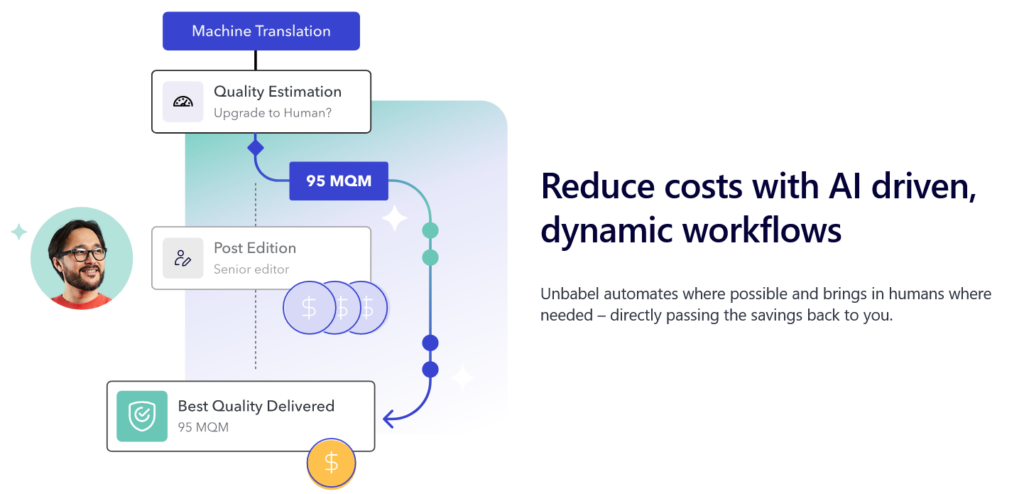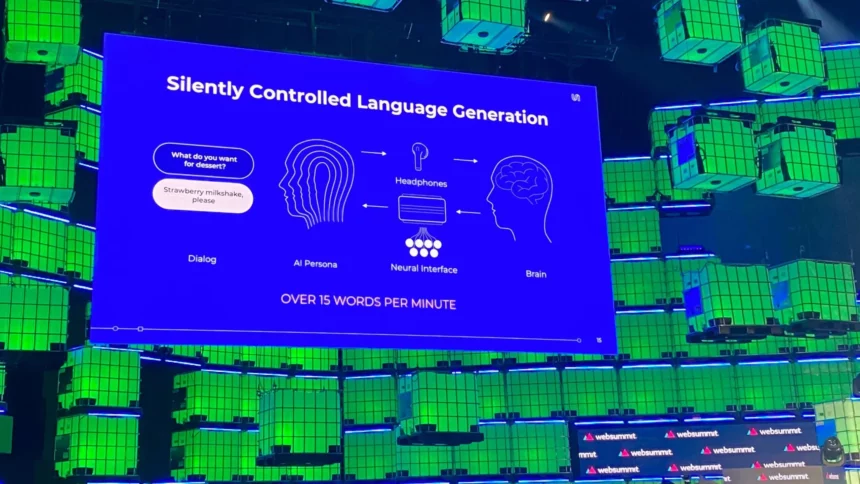Unbabel, a neural tech company, showcased its groundbreaking Project Halo at the Web Summit conference, emphasizing its ambition to facilitate silent communication between humans and machines through thoughts. The project integrates a non-invasive neural interface with generative AI to convert bioelectrical signals into language.

Unbabel CEO Vasco Pedro highlighted the universal language within our brains, citing fMRI images that reveal similar brain activation patterns across individuals speaking different languages but thinking about the same object. Project Halo allows users to receive messages through earbuds and respond silently by merely thinking about their reply.
Pedro discussed the diverse applications of this technology, from discreetly answering texts in a dark movie theater to profoundly impacting individuals, such as those with ALS, enabling them to communicate through text or audio notes. By training a text-to-speech model with their voice, individuals with ALS can even regain the ability to speak.

A heartwarming example demonstrated how Project Halo empowered an ALS patient to silently convey his lunch order to his wife, decoding his thoughts and synthesizing the text response in his original voice recorded before losing the ability to speak.
Project Halo utilizes an EMG neural interface on the arm to capture bio signals, ensuring controlled thought-reading. Users must genuinely desire to input an answer for the device to respond. Pedro explained the process, stating, “I’m getting the question read to me through my AirPods, and then I’m using a neural interface that is actually in my arm here—it’s an EMG. It’s capturing bio signals, and what’s happening is a large language model that knows a lot about me is trying to create the answer that I would want to give.”

While Unbabel’s Project Halo isn’t the first mind-reading AI, Pedro highlighted its unique feature: the ability to read minds and generate natural language responses. This involves integrating a language model that learns about users’ personal context, relationships, and preferences to craft accurate messages.
The system processes around 15 words per minute, a significant improvement compared to slower legacy methods. While Project Halo is in its early stages, Unbabel plans to launch it commercially in 2024, envisioning it as a tool for universal communication, eliminating language barriers and enabling seamless interaction for people of all physical abilities. Pedro expressed the company’s commitment to using AI for good and fostering inclusive communication.








